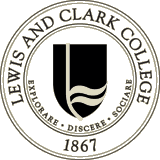 AMERICAN SOCIETY
OF COMPARATIVE LAW
AMERICAN SOCIETY
OF COMPARATIVE LAW
YOUNGER
COMPARATIVISTS COMMITTEE
CONFERENCE
ANNOUNCEMENT
The
Younger Comparativists Committee of the American Society of Comparative Law is
pleased to invite submissions for its third annual conference, to be held on
April 4-5, 2014, at Lewis & Clark Law School in Portland, Oregon. The purpose of the conference is to highlight,
develop, and promote the scholarship of new and younger comparativists.
Conference
Subject-Matter and Eligibility
Submissions
will be accepted on any subject in public or private comparative law from
scholars who have been engaged as law teachers, lecturers, fellows, or in another
academic capacity for no more than ten years as of June 30, 2014. We will also accept submissions from graduate
students enrolled in master’s or doctoral programs.
Submission
Instructions
To
submit an entry, scholars should email an attachment in Microsoft Word or PDF
containing an abstract of no more than 750 words no later than November 1, 2013,
to the following address: ycc.conference.2014@gmail.com. Abstracts should reflect original research
that will not yet have been published, though may have been accepted for
publication, by the time of the conference. Abstracts should also include the
author’s name, title of the paper, institutional affiliation, contact
information, as well as the author’s certification that she/he qualifies as a
younger scholar. Graduate students should identify themselves as such.
Scholars
may make only one submission. Both
individual and co-authored submissions will be accepted. For co-authored submissions, both authors
must qualify as eligible younger comparativists. The conference’s Program Committee will
assign individual and co-authored submissions to thematic panels according to
subject area. Proposals for fully formed
panels will also be accepted.
Notification
Authors
of the submissions selected for the conference will be notified no later than
December 20, 2013. There is no cost to register for the
conference but participants are responsible for securing their own funding for
travel, lodging and other incidental expenses.
A limited number of travel stipends may be awarded to those who
demonstrate financial need. If you would
like to be considered for a travel stipend, please make that request in your
submission.
Graduate
Student Prize










